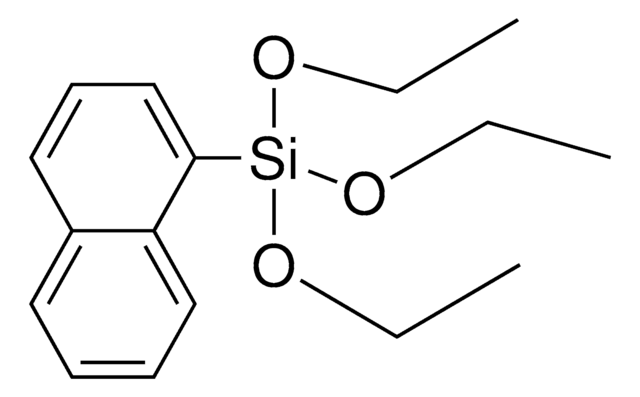Kluczowe dokumenty
SML0108
R18 trifluoroacetate
≥98% (HPLC)
Synonim(y):
L-Prolyl-L-histidyl-L-cysteinyl-L-valyl-L-prolyl-L-arginyl-L-a-aspartyl-L-leucyl-L-seryl-L-tryptophyl-L-leucyl-L-a-aspartyl-L-leucyl-L-a-glutamyl-L-alanyl-L-asparaginyl-L-methionyl-L-cysteinyl-L-leucyl-L-proline trifluoroacetate, PHCVPRDLSWLDLEANMCLP trifluoroacetate, Pro-His-Cys-Val-Pro-Arg-Asp-Leu-Ser-Trp-Leu-Asp-Leu-Glu-Ala-Asn-Met-Cys-Leu-Pro trifluoroacetate
About This Item
Polecane produkty
Poziom jakości
Próba
≥98% (HPLC)
Postać
powder
kolor
white to off-white
Warunki transportu
wet ice
temp. przechowywania
−20°C
ciąg SMILES
OC(=O)C(F)(F)F.CSCC[C@H](NC(=O)[C@H](CC(N)=O)NC(=O)[C@H](C)NC(=O)[C@H](CCC(O)=O)NC(=O)[C@H](CC(C)C)NC(=O)[C@H](CC(O)=O)NC(=O)[C@H](CC(C)C)NC(=O)[C@H](Cc1c[nH]c2ccccc12)NC(=O)[C@H](CO)NC(=O)[C@H](CC(C)C)NC(=O)[C@H](CC(O)=O)NC(=O)[C@H](CCCNC(N)=N)NC(=O)[C@@H]3CCCN3C(=O)[C@@H](NC(=O)[C@H](CS)NC(=O)[C@H](Cc4c[nH]cn4)NC(=O)[C@@H]5CCCN5)C(C)C)C(=O)N[C@@H](CS)C(=O)N[C@@H](CC(C)C)C(=O)N6CCC[C@H]6C(O)=O
InChI
1S/C101H157N27O29S3.C2HF3O2/c1-48(2)33-62(86(142)111-60(25-26-77(131)132)83(139)110-53(11)81(137)114-67(39-76(102)130)91(147)112-61(27-32-160-12)85(141)124-72(45-158)95(151)122-70(36-51(7)8)98(154)128-31-18-24-75(128)100(156)157)116-93(149)69(41-79(135)136)121-87(143)63(34-49(3)4)115-89(145)65(37-54-42-108-57-20-14-13-19-56(54)57)118-94(150)71(44-129)123-88(144)64(35-50(5)6)117-92(148)68(40-78(133)134)120-84(140)59(22-16-29-107-101(103)104)113-97(153)74-23-17-30-127(74)99(155)80(52(9)10)126-96(152)73(46-159)125-90(146)66(38-55-43-105-47-109-55)119-82(138)58-21-15-28-106-58;3-2(4,5)1(6)7/h13-14,19-20,42-43,47-53,58-75,80,106,108,129,158-159H,15-18,21-41,44-46H2,1-12H3,(H2,102,130)(H,105,109)(H,110,139)(H,111,142)(H,112,147)(H,113,153)(H,114,137)(H,115,145)(H,116,149)(H,117,148)(H,118,150)(H,119,138)(H,120,140)(H,121,143)(H,122,151)(H,123,144)(H,124,141)(H,125,146)(H,126,152)(H,131,132)(H,133,134)(H,135,136)(H,156,157)(H4,103,104,107);(H,6,7)/t53-,58-,59-,60-,61-,62-,63-,64-,65-,66-,67-,68-,69-,70-,71-,72-,73-,74-,75-,80-;/m0./s1
Klucz InChI
RLMYFUMCZYJMNX-KIXMOXNVSA-N
Opis ogólny
Zastosowanie
Działania biochem./fizjol.
Kod klasy składowania
11 - Combustible Solids
Klasa zagrożenia wodnego (WGK)
WGK 3
Temperatura zapłonu (°F)
Not applicable
Temperatura zapłonu (°C)
Not applicable
Certyfikaty analizy (CoA)
Poszukaj Certyfikaty analizy (CoA), wpisując numer partii/serii produktów. Numery serii i partii można znaleźć na etykiecie produktu po słowach „seria” lub „partia”.
Masz już ten produkt?
Dokumenty związane z niedawno zakupionymi produktami zostały zamieszczone w Bibliotece dokumentów.
Nasz zespół naukowców ma doświadczenie we wszystkich obszarach badań, w tym w naukach przyrodniczych, materiałoznawstwie, syntezie chemicznej, chromatografii, analityce i wielu innych dziedzinach.
Skontaktuj się z zespołem ds. pomocy technicznej